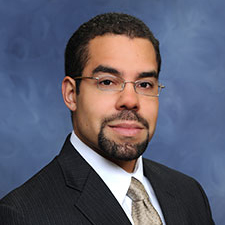A Response to 'The Bowdoin Orient' on Hourly Employees
An article in the May 4, 2018, edition of The Bowdoin Orient (“Facilities workers struggle to make ends meet”) contains errors and omissions, and it requires a response.
Bowdoin’s hourly workers are dedicated, hardworking employees who truly “make Bowdoin run.” The College takes very seriously its responsibility to compensate these employees fairly and to treat them as essential members of our community. That’s why our compensation and benefits program is the best in the region and among the best in the state, and it’s why we constantly work to make it better.
Hourly wages are important, but at Bowdoin, they are just the starting point. We deliberately and consistently provide an initial hourly wage that exceeds the minimum wage in Maine, and we build our budgets to ensure that we will continue to do so well into the future. And because our shift structure provides additional compensation, we almost always pay our employees more than the stated hourly rate.
These are secure jobs. In Maine, there is a shortage of year-round hourly jobs, but the majority of hourly jobs at Bowdoin are forty hours a week, twelve months a year. It is also worth noting that during the financial crisis that began in 2008, none of our hourly workers lost their jobs. In fact, salaried faculty and staff agreed to a wage freeze in order to prevent layoffs at the College, while those earning less than $40,000 a year received modest increases.
Bowdoin’s benefits program is among the best at any college or university in the nation and exceeds what is offered by other employers in the region.
Specifically, the College provides these benefits to hourly staff:
- retirement contributions per pay period of 10.12 percent or 12.13 percent (depending on the age of the employee) that do not require a match or any additional contribution by the employee and are fully vested;
- an option to participate in one of three competitive health plans with employee contributions based on income;
- an affordable dental plan and vision plan;
- disability and life insurance paid by the College;
- twelve paid holidays, plus paid time off for the days between Christmas and New Year’s Day;
- two weeks of paid vacation that accrue in an employee’s first year and three weeks paid vacation that accrue in year two;
- twelve days of paid sick leave per year that can accrue up to sixty-five days;
- emergency paid sick leave for employees with a serious health condition who have exhausted their personal sick time; and
- increased hourly wages for less desirable shifts and on weekends.
Beyond the wages and benefits, we pay careful attention to the needs of individual employees and have programs in place to assist those who may experience unanticipated financial hardships. For example, the College has recently covered rent and mortgage payments, fuel oil bills, furnace and car repairs, unexpected medical costs, and housing when disaster strikes. When we hear of a problem, the College tries to help, as do members of the campus community.
The numbers bear out the quality of our compensation and benefits programs, and the place our hourly workers have in our community. Our housekeepers and groundskeepers average ten years of service and, overall, our facilities staff average a dozen years on the job.
Most of this was left out of the Orient article, and other things in the piece are simply not true. For example, Bowdoin does not and never has prohibited employees from calling 9-1-1 in an emergency—something the Orient has now corrected online. Calling 9-1-1 is exactly what we ask every member of our community to do in an emergency. And today, barring some unanticipated circumstance, no employee works more than ten hours a day during the transition from final exams, Commencement, and Reunion—work that is heroic and rightfully worthy of the overtime they earn. The Orient also describes work tasks that can lead to repetitive motion and other injuries, and it underscores the difficulty of some duties. While studies consistently show that housekeeping jobs carry a disproportionately high risk of injury, Bowdoin’s injury rate for housekeepers trends well below industry averages, and the College is vigilant about worker safety. We solicit input from housekeeping and other staff on ways to reduce injuries and strain, and we implement and fund their suggestions. We also regularly ask representatives from Maine Employers Mutual Insurance Company (MEMIC) to meet on campus with these employees to learn more about what we can do to improve health and safety on the job.
Bowdoin’s compensation, benefits, and other programs set the College apart as an employer, and we aim to keep it that way. And, as noted above, we strive all the time to make these better. The professionals in our human resources department spend a significant amount of time each year looking carefully at compensation data and benefit packages, analyzing market conditions, and thinking creatively about ways to enhance employee programs and our work environment.
Hourly workers are essential and valued deeply by the College. We will continue to work hard to earn their dedication and to make sure they are compensated fairly, treated with respect, and acknowledged as indispensable members of the Bowdoin community.



